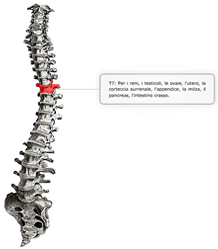The Importance of Fiber
FIBER
The importance of dietary fiber on our overall health can’t be overstated.
Most Americans get less than half the recommended minimum fiber intake per day. According to the Institute of Medicine, women should consume 25 grams per day, and men 38 grams. This is rarely achieved by most Americans.
Hippocrates stated “All disease begins in the gut.” With our current understanding of the central nervous system, perhaps it's safer to say most disease begins in the gut.
Most doctors and patients don’t like talking about poop, but the fact is, constipation has reached epidemic proportions in Western countries, especially among the elderly. Laxatives are among the most commonly used over-the-counter medication.
The benefits of fiber for regulating bowel movements has been common knowledge for many years. Fiber prevents both constipation and diarrhea by enabling our stools to absorb water. Consequently our stools become more bulky and soft which makes it easier to pass.
But there’s much more to fiber than just regulating bowel movements. Research has uncovered numerous benefits associated with fiber:
- Lowers cholesterol
- Anti-inflammatory (promotes IL-10 response)
- Decreases appetite by slowing gastric emptying
- Anti-obesity
- Anti-cancer effects (both preventing and slowing cancer growth)
- Prevents type II diabetes, cardio-vascular disease, osteoporosis, stroke and more
Does this mean eating more fiber help chronic back and neck pain? Yes. What about losing weight? Yes. Can eating more fiber give me more energy? Very likely. Can increasing fiber help me lose weight? Yes. What about my chronic headaches and that pain in my little toe? Yes and yes. Can fiber keep me from getting sick in winter months? Yes. Can fiber potentially extend my life? Yes.
Fiber Stimulates The Growth Of Good Bacteria in Our Gut
Humans can’t digest dietary fiber, however the friendly bacteria living inside our digestive tracts can. In fact, they thrive on it. When our gut bacteria digests fiber they produce what are called Short Chain Fatty Acids (SCFAs). These SCFAs have a number of health promoting effects, such as inhibiting the growth of bad bacteria, increasing mineral absorption, increasing motility (pushes poop forward), prevention of leaky gut, and reducing inflammation throughout our body.
Q. Can adequate amounts of fiber be achieved by eating salads and fruit daily?
A. While fresh fruits and vegetables are recommended, most people require additional fiber in the form of chia seeds, or flaxseeds.
Q. Can juicing help?
A. No. Juicing removes a lot more than fiber. It also cancels all the nutrients that are bound to the fiber. Moreover, juicing, often makes our blood sugar spike.
Q. How should I take chia seeds, or flaxseeds?
A. Doctors using Applied Kinesiology can test which seeds are most compatible for each patient at any given moment in time. Arriving at the right type, frequency, and dosage is a process that takes weeks, as the body strives to achieve the right balance.
If someone does not have access to a qualified Applied Kinesiologist, self-administration is another option:
- Start by alternating between flaxseeds and chia seeds. NB. don’t take the same type of seed every day as this will likely create intollerance. A schedule like Monday and Thursday Chia, and Wednesday and Saturday Flax is a good plan.
- Chew the seeds whole. Taking ground seeds can also work but it won’t be as effective as whole seeds.
- Take just before a meal, or during a meal.
- In the first week, take 1 teaspoon per day then work your way up to 1 or 2 tablespoons per day. Don't mix seed type on the same day (see #1).
- Keep a journal of your bowel movements. If you remain constipated you may need to increase the dosage. If your stools become too loose, look for patterns. One type of seed may not agree. Try suspending the seed in for 2 weeks, then re-introduce it into your diet, but this time, reduce the frequency (i.e. every third or fourth day). If stools become loose again, eliminate that seed altogether.
- There are other good sources of rough fiber such as pumpkin seeds (avoid sprouted), sesame, or coconut flakes. Based on experience, no less than a tablespoon will work, but more than once a week can create a sensivitity. So something like, 1 tablespoon, once a week on these seem to work. Psyllium husk seems to be problematic on the whole.
Over time the right balance will be achieved and stools should become regular and well-formed. It is always essential to avoid unhealthy foods which constipate, such as refined flour, or white rice. Likewise, diarrhea is often the body’s way of eliminating bad food quickly, so monitor what you've eat and look for clues. Chronic stress is another source of constipation, as is simply not taking the time to sit and attempt to defecate. But remember, regulating bowel movements is just one of the numerous effects that fiber has on our overall health. Keeping inflammation in check is perhaps the most important reason for eating seeds regularly.

 SCHEDULE AN APPOINTMENT
SCHEDULE AN APPOINTMENT









